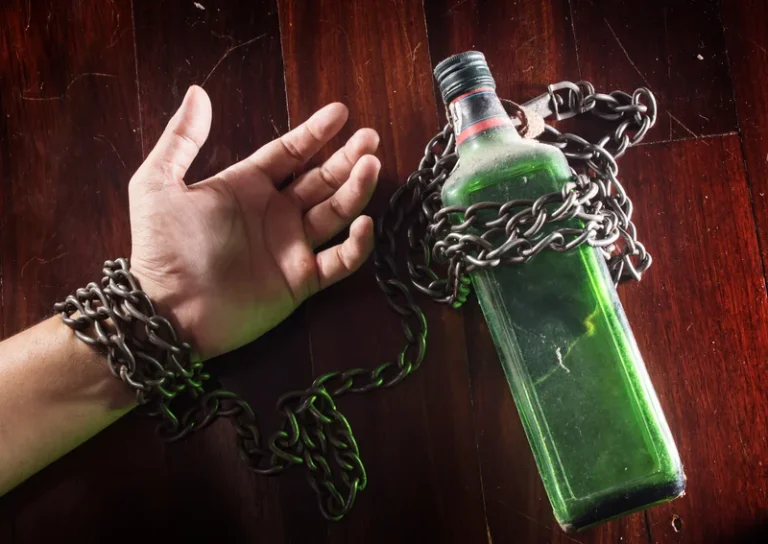
In severe cases of withdrawal when symptoms are not treated, a person may experience generalized tonic-clonic seizures, delirium tremens, and even death. These withdrawal symptoms occur because of overactivity of the central and autonomic nervous systems. If you want to explore your relationship with alcohol, it can be helpful to cut it out and note any changes in your life caused by its elimination.

The Difference Between Sobriety & Recovery
At Renaissance Recovery our goal is to provide evidence-based treatment to as many individuals as possible. Give us a call today to verify your insurance coverage or to learn more about paying for addiction treatment. Quitting drinking not only bolsters your immune system but also becomes a crucial defense against diseases like cancer.
- If PAWS is severe or if you’re experiencing prolonged symptoms, a medical professional can help you work through them and remain in recovery without relapse.
- If you’re still feeling irritable, or if you’re not on the same page as your loved ones, that’s okay too!
- All calls are 100% confidential and we are committed to making treatment accessible to everyone in need.
- I often hear from patients who, after a night of drinking, wake up feeling anxious, embarrassed, and disoriented.
- A third important change to think about is how your sobriety journey will impact your relationship with partners, friends, and family.
Day 6

Furthermore, maintaining sobriety can decrease the risk of chronic diseases and health complications. Alcohol and drug abuse can cause damage to different organs and systems in the body, such as the liver, heart, and respiratory systems. Individuals can decrease their risk of developing long-term health complications by abstaining from substance use. If these emotions become excessive, they can hold you back from recovery. If you are trying to maintain a sober lifestyle, those feelings can become toxic and contribute to relapse if you don’t deal with them properly. Post-acute withdrawal syndrome (PAWS) involves withdrawal symptoms that persist past the detox period.
The Second Week Without Alcohol
- When I got sober, it became very clear who I hung out with because I needed bar buddies and who I actually enjoyed being around.
- Volpicelli says that some of the negative effects of alcohol on mental health can be reversed if you stop drinking.
- Taking care of your organs is one of the positive effects of sobriety.
- The mental and physical wellness that comes with sobriety will improve every single aspect of your life and infuse a sense of well-being you may not have felt in a long time.
- If you’re seeking help for yourself or a loved one, our expert team is here to guide you every step of the way.
- My drinking was all about self-loathing, which I had done for almost twenty years at that point.
These communities provide a safe and supportive environment to discuss your struggles and successes and to learn from others. However, pursuing sobriety can benefit your mental health and overall well-being. Shame is having negative beliefs about yourself and your self-worth. People in recovery can experience a lot of shame simply for having become addicted in the first place.
- That often leads to being unable to see or enjoy the good as well.
- Disturbances to these patterns diminish sleep quality as alcohol metabolizes overnight.
- Now that you are sober, you may have discovered that some of your past relationships were not only unhealthy but downright toxic.

Embracing sobriety is a life-changing decision that offers numerous benefits across all aspects of your life. If you or someone you love is considering this path, Uplift Recovery is ready to support you. When you choose to go to the gym or take a cooking class, you’re signaling that you are open to seeing what else this life has to offer. The cumulative effects of all these new experiences and choices add up. People who are successful with their sobriety find ways to keep themselves busy. It’s through that process that many people start to forgive themselves and see the value they can bring to the world.
Improved Sleep Quality and Energy Levels
If this is enough motivation to take you into week 3, that’s great. If you’re feeling like you can use some encouragement heading into the second half of reasons to stay sober the month, you’re not alone. For example, Dr. Kennedy notes that getting a better night’s rest can help improve a person’s mental clarity, energy levels, and even their mood. “Most individuals find that they experience more consistency in their mood and less anxiety,” says Dr. Kennedy. Which, she points out, can improve relationships and help people to discover that they can have fun without alcohol. While many of the benefits of quitting drinking were highlighted above, there are others to consider as well.

The warmth and friendliness of a small town combined with the technical expertise of a major medical center.
Continuing to attend support groups and stay engaged in sobriety communities can also help you stay in touch with your ‘why’, and even inspire others along their journey. Riviera Recovery is a health and wellness sober living community helping men & women recover from substance use, mental health and co-occurring disorders. In this article, we will examine some of the key benefits of sobriety and how they can positively impact those in addiction recovery.
If you’re ready to start on your path toward sobriety, American Addiction Centers (AAC) can help. Alcohol.org is a subsidiary of AAC, a nationwide provider of addiction treatment centers offering a combination of proven therapies and services to meet your individual needs. Further, if you’re caught drinking and driving, you may be charged with a DUI which can result in additional financial burdens. A DUI typically includes fees for bail, attorneys, court fines, court-mandated classes, and public transportation costs due to the loss of a license or vehicle, though fees vary state-by-state. When all is said and done, a first-time DUI offense could potentially cost you anywhere from $10,000 to $25,000. Life continues to get better as we heal and move along our paths of recovery, whatever that looks like to you.
